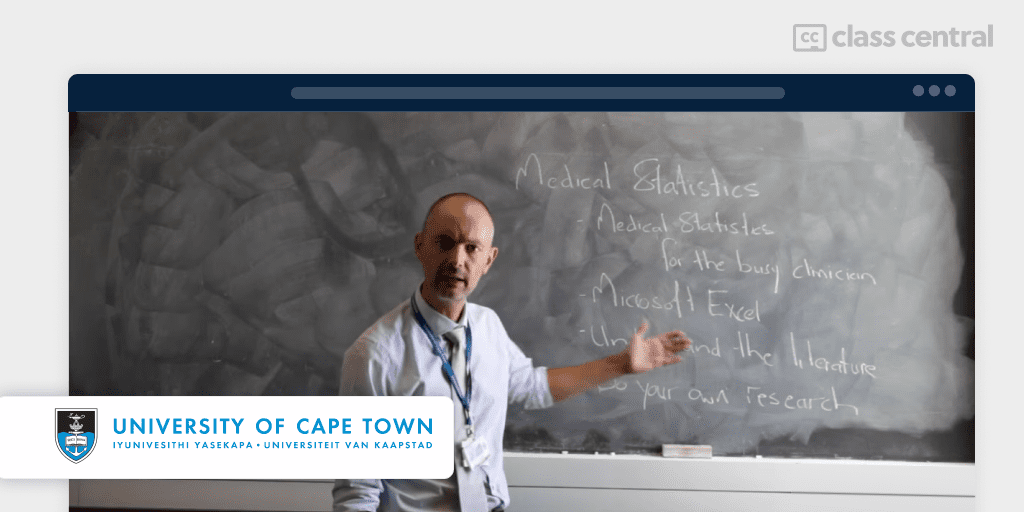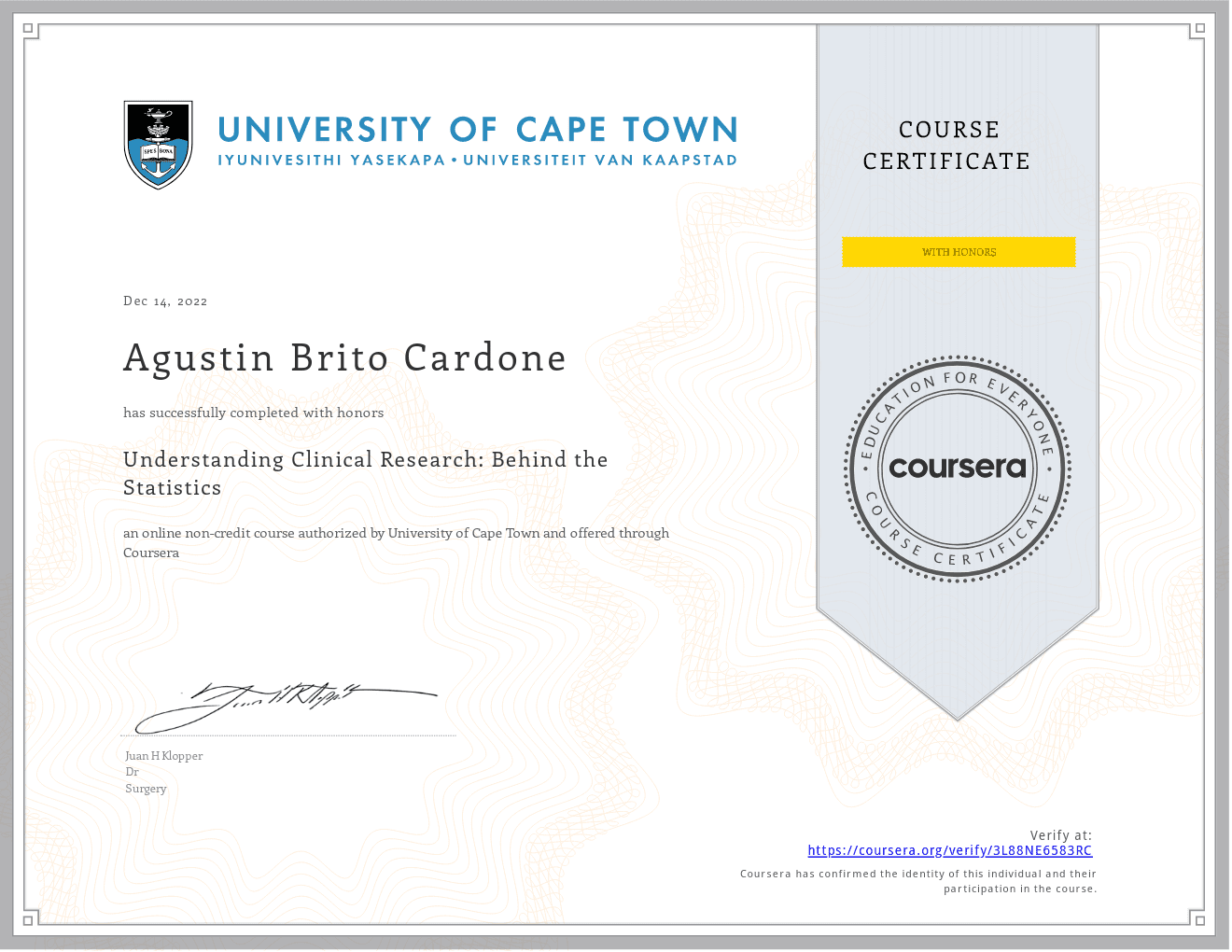
First of all, I must admit that mathematics and numbers are not my cups of tea, but this course made it look so simple and interesting that I found myself enjoying every single video and lecture.
To give more context, the course is called Understanding Clinical Research: Behind the Statistics from the University of Cape Town in South Africa; it teaches you how to read articles, studies and papers (from PubMed, for example) properly, which means:
- Looking for keywords;
- Knowing if the method was chosen correctly and wisely, in correlation to the data;
- Knowing which studies and papers are trustworthy;
- Knowing how to look for papers and studies properly;
- Knowing how to use specific formulas and interpret them in studies;
- And much more.
Editor’s note: This course has been featured in the Best Online Courses of All Time and Top FREE Coursera Courses of All Time.
Why I took this course
I must say that one of the reasons the course was so easy to follow is because Dr Juan H. Klopper, the instructor, did an amazing job explaining every detail, especially the formulas, in a simple and understandable way.
Now, you might wonder; Why should I do this course? Well, in my case it’s because I am studying psychology and when doing research, writing articles, and essays, and working on my thesis, I need trustworthy and professional sources; we must understand that Wikipedia is not one.
My background and skills stepping in this course were higher than basic because as psychologists we must know how to interpret data and how to conduct case studies but I must say that by the end of it, I learned way more than I expected.
Another big reason why I did this course and why I encourage people to try it is because sadly, we can find loads of “articles” and so-called “professionals” who fall to conclusions using wrong data or, even worse, use wrong approaches to contaminate the data and get the results they want and not the actual ones (studies about hormones usage is the perfect example).
About the course
The way this course works is the following;
- You have to watch videos and lectures and read the recommended material.
- Each week has graded and practice quizzes.
- Another way to be evaluated is with “Peer Review” for which you must look for a case study on PubMed and answer some questions; your answers will be reviewed by other people doing the course and you have to evaluate them (the course gives you a structure and questions to follow when evaluating others).
- You even have the chance to watch extra material and a chance to be an “Honour Student” which you can get if you do an extra “Peer Review” evaluation.
- The course has flexible deadlines.
- It is 100% online.
- It takes approximately 27 hours to complete.
- It has a variety of subtitles.
Conclusion
To conclude this review, I will say that this course is a must if you are interested or involved in the area of research or even if you would like to understand more about what all those numbers and statistics mean.
And do not be afraid of the numbers, by the end you will realize it’s not as hard as it looks and you would be even looking for more courses!
I hope this review helps you get an idea of the course and I encourage you to challenge yourself, leave your comfort zone and give it a chance!


